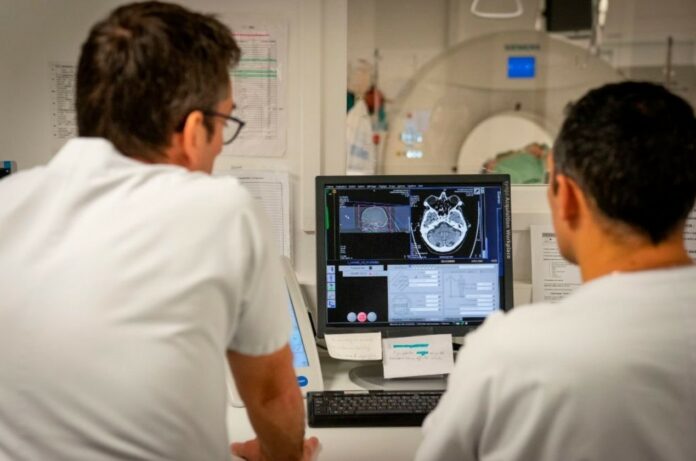Researchers from the University of Birmingham and Bangor University who published their findings in the Journal of Neuroscience today believe their discovery could enhance motor rehabilitation for stroke survivors.
New research demonstrates that the human brain prepares expert motions such as playing the piano, participating in sports, or dancing by ‘zipping and unzipping’ information regarding the timing and sequence of movements ahead of the activity being done.
Experts have found that the brain separates the order and time of motions in complicated sequences before zipping and transferring them into individual movement instructions, or “muscle memory,” when the person starts the activity.
They observed that high-level movement sequencing (order and timing) may be maintained across various motor regions of the brain, sometimes across several days of training and memorizing action sequences, before being reactivated by a trigger like a musical cue or a starting gun.
Researchers from Birmingham and Bangor universities published their results today in Journal of Neuroscience, hoping to enhance stroke sufferers’ motor recovery.
Whether it’s writing by hand or playing a musical instrument, the ability to perform movement sequences from memory is a defining characteristic of “skilled human behavior.”
“What is surprising is that,” remarks Principal investigator Dr. Katja Kornysheva, “the brain separates these skills into their constituent features rather than encoding them as an integrated muscle memory, even after extensive training. There is a shift in information states within the brain when performing such tasks.”
When we prepare information for execution, information is obtained from memory unzipped. After that, the information is zipped together, and then the job is started, according to Dr. Kornysheva.
“Perhaps this unzipping mechanism,” according to the researcher, “helps us to stay flexible for adjustments, even in the final hundreds of milliseconds before we start the movement, e.g. if we need to change the speed or timing of an upcoming action.”
In a series of almost a thousand trials, right-handed people (but not professional musicians) learned and memorized four keyboard sequences that they prepared and then played when they saw a cue. Following training, participants typed the keyboard commands in an MRI scanner, which recorded the brain’s activity during the task. In some of the trials, the “go” signal did not occur, which enabled the researchers to distinguish between the act of preparation and the actual action.
“We also found several brain regions which control timing during movement production, but none seemed to control order without integrating it with timing,” points out first author Rhys Yewbrey.
These participants showed a matching effect in their behavior; they learned a sequence with a new order of finger presses more quickly when they were familiar with the timing, but they had difficulty learning a sequence when they had to couple a previously learned order with a new time.
“Perhaps timing control staying active during production allows for flexibility even after the movement has started.”
The brain is thought to distinguish between sequence order and time as “what” aspects denoting higher-level control, which are then combined to determine “exactly” how the job should be carried out.
These new findings contribute to our understanding of how daily abilities like typing, tying shoes, and playing an instrument are stored and regulated in the brain as well as what makes them adaptable and resistant to environmental changes or neurological disorders.
Image Credit: BSIP/Education Images/Universal Images Group via Getty Images
